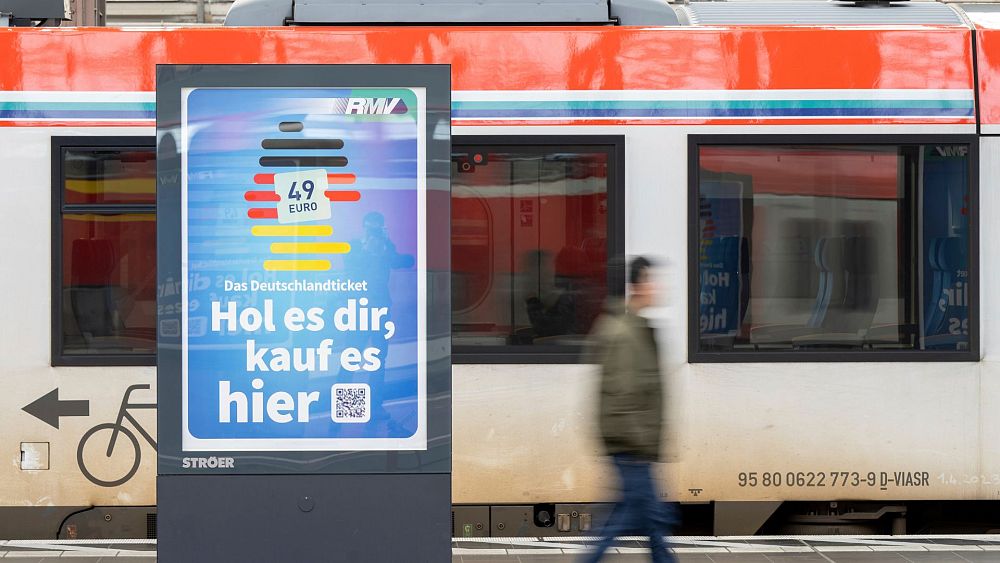Germany’s popular €49 public transport ticket might soon become more expensive.
More than three million Germans have purchased the ‘Deutschlandticket’ since it was launched in April.
The pass - which offers unlimited travel on all local and regional public transport - was hailed by authorities as the “biggest public transport reform in German history”.
But transport bosses have warned that the low price is unsustainable.
Local and regional companies are being squeezed by high inflation, Munich’s MVG transport authority boss Ingo Wortmann said, but ticket revenue remains low.
"So far, politics has absorbed the difference to the previous income for the transport company," he told Abendzeitung, a daily newspaper in Germany.
But a price hike is likely from January 2024 - and the increases will not be limited to the new pass, he said.
"I think all ticket prices will have to be increased."
What is the Deutschlandticket?
Also known as the ‘D-ticket,’ the low-cost pass currently costs €49 per month, or roughly €1.60 per day. It is valid on all city buses, subways and trams in municipalities across Germany, as well as short and medium-distance transport including trains. It can’t be used for long-distance trains operated by DB Fernverkehr AG (including RE) or other providers such as FlixTrain (IC, EC, ICE).
The monthly pass is the successor scheme to the €9-per-month ticket trialled last summer.
Introduced to combat rising inflation after Russia invaded Ukraine, the ultra-cheap pass was extremely popular. More than 52 million tickets were sold for travel in June, July, and August
German transport companies association VDV claim that it saved around 1.8 million tonnes of carbon emissions during these three months.
The €9 price-tag was unsustainable in the longer term - but the €49 ticket is also very popular, crashing Deutsche Bahn’s website when it was first launched.
Of the 3 million people who have already purchased it, at least 750,000 have never taken out a public transport subscription before.
Any potential increase in price could meet with fierce political opposition.
Nikolaus Gradl, the traffic expert for City of Munich Council, described the idea of a hike as “absurd.”
“For us, a price increase is not an option,” he told Abendzeitung.
The federal and state governments may continue to fund the shortfall, easing the impact that inflation and material costs have on the public transport companies.
What other changes to the Deutschlandticket are authorities considering?
A price increase isn’t the only change to the Deutschlandticket authorities are considering.
The federal traffic light coalition is currently working on a “family-friendly rule” which would allow ticket-holders to bring one other adult and up to three children between the ages of six and 14 with them at certain times.
If agreed to by transport companies, this rule would apply on weekends, holidays, and after 8pm on weekdays.


